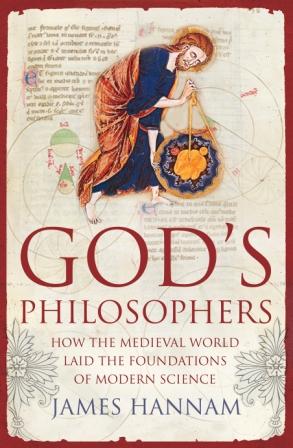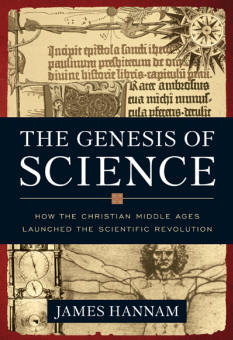
|
If you have enjoyed Bede's Library, you can order my book, The Genesis of Science: How the Christian Middle Ages Launched the Scientific Revolution (US) from Amazon.com or God's Philosophers: How the Medieval World Laid the Foundations of Modern Science (UK) from Amazon.co.uk. |
|
For my latest thoughts on science, politics, religion and history, read Quodlibeta
|
History
![]()
Contents
- The Mysterious Fate of the Great Library of Alexandria
- An awful lot of ink has been splashed around about the destruction of the Great Library. You can blame Christians, Moslems or Julius Caesar depending on taste. But the only way to find the truth is a careful examination of the original sources. This essay goes over them with a fine-toothed comb and finds that while Christians and Moslems were almost certainly innocent, the Romans just might have a lot to answer for. A very much longer, more detailed and heavily annotated version of this article is available here.
- Frequently Asked Questions on the Inquisition
- There can be little doubt that the Inquisition is one of the most notorious institutions in history. While some of that ill fame is warranted, a great number of myths and legends have sprung up about its workings and power. This FAQ, with a bibliography and references, gives the facts about the Inquisition for anyone who is interested.
- Emperor Justinian's Closure of the School of Athens
- Ever since Edward Gibbon, we've been told that Greek philosophy died when the Christian Emperor Justinian closed down the pagan school of Plato in Athens. The truth turns out to be rather more complicated. For a start, it wasn't the school of Plato at all and the philosophers who had taught at Athens continued their writing, if not teaching, careers unmolested.
- Christianity and Pagan Literature
- You still hear that early Christians ran around burning any books they didn't like the look of, which is why so little classical literature has survived. Yes, Christians have destroyed heretical works but so did all other groups. Nonetheless, deliberate destruction is only a minor element of why most ancient books are no longer extant.
- Hitler and Christianity
- Hitler's religious beliefs have been a matter of controversy on the internet, if not among historians, and guest writer Edward Bartlett-Jones, an expert on the Third Reich and related matters, has set out to set the record straight.
- The Myth of the Flat Earth
- Contrary to popular belief, every educated person in the Middle Ages was well aware that the Earth is a sphere and the Church did not suggest otherwise. Here is a look at this myth of alleged Christian dogmatism and how it got started.
- The Mythical Conflict between Science and Religion
- The conflict hypothesis began as part of the reaction against religion in the nineteenth century with the work of John William Draper and Andrew Dickson White. Despite the fact that it is utterly rejected by all practising historians of science, it lives on in the popular imagination and is incredibly hard to kill off. This article examines some common misconceptions and exposes White's errors and omissions.
- The Decline and End of Witch Trials in Europe
- Until recently, it was widely believed that witch trials and fear of witches declined as part of a general increase in rationality during the Enlightenment. In fact, as this article shows, legal reform and strong government were the main reasons that trials ended, rather than an end to belief in witchcraft itself.
- Medieval Science, the Church and Universities
- History of Science is often assumed to have ground to a halt during the Middle Ages under a blanket of clerical disapproval. This essay is an overview of the intellectual and social state of science at the time, the Church's generally positive attitude and now science interacted with religion during this period. It is intended to serve as a statement of the context within which debates about these subjects can take place.
- Copernicus and his Revolutions
- The great work of Copernicus, his De revolutionibus, is one of the most misunderstood books in history, largely because hardly anyone has actually read it. This essay examines the arguments Copernicus uses and his stated motivations so as to discover exactly what he did achieve and just how important his religious beliefs were in inspiring the conceptual breakthrough of heliocentricism.
- On the Development of Scientific and Religious Ideas
- Intellectual history is a rapidly evolving field bringing together social science, philosophy and historiography. This essay examines how the closely linked subjects of science and religion can be studied, what methods we should use and how ideas can change in the face of the essential conservatism of society.
- Hitler and Christianity
- Hitler's religious beliefs have been a matter of controversy on the internet, if not among historians, and guest writer Edward Bartlett-Jones, an expert on the Third Reich and related matters, has set out to set the record straight.
- The Myth of the Flat Earth
- Contrary to popular belief, every educated person in the Middle Ages was well aware that the Earth is a sphere and the Church did not suggest otherwise. Here is a look at this myth of alleged Christian dogmatism and how it got started.
- Short articles
- At the moment there are only two short essays here. One is about the papal index of prohibited books and the other on the Christian origins of modern science.
- Links to History and History of Science sites
- My main interests are the Histories of Science and the Church. Here are some links to web sites of related interest including, as always, my highly subjective comments. Many of the links are to course notes written by academics or single essays so I have given them a rather abbreviated treatment.
- Reviews of History of Science books
- I have shelves of history books at home but have restricted myself here to reviewing works on the history and philosophy of science. My speciality is medieval science and the relationship between science and religion. I am particularly interested how Christianity influenced the so-called Scientific Revolution and how this grew out of the achievements of the scholastic natural philosophers.
![]()

